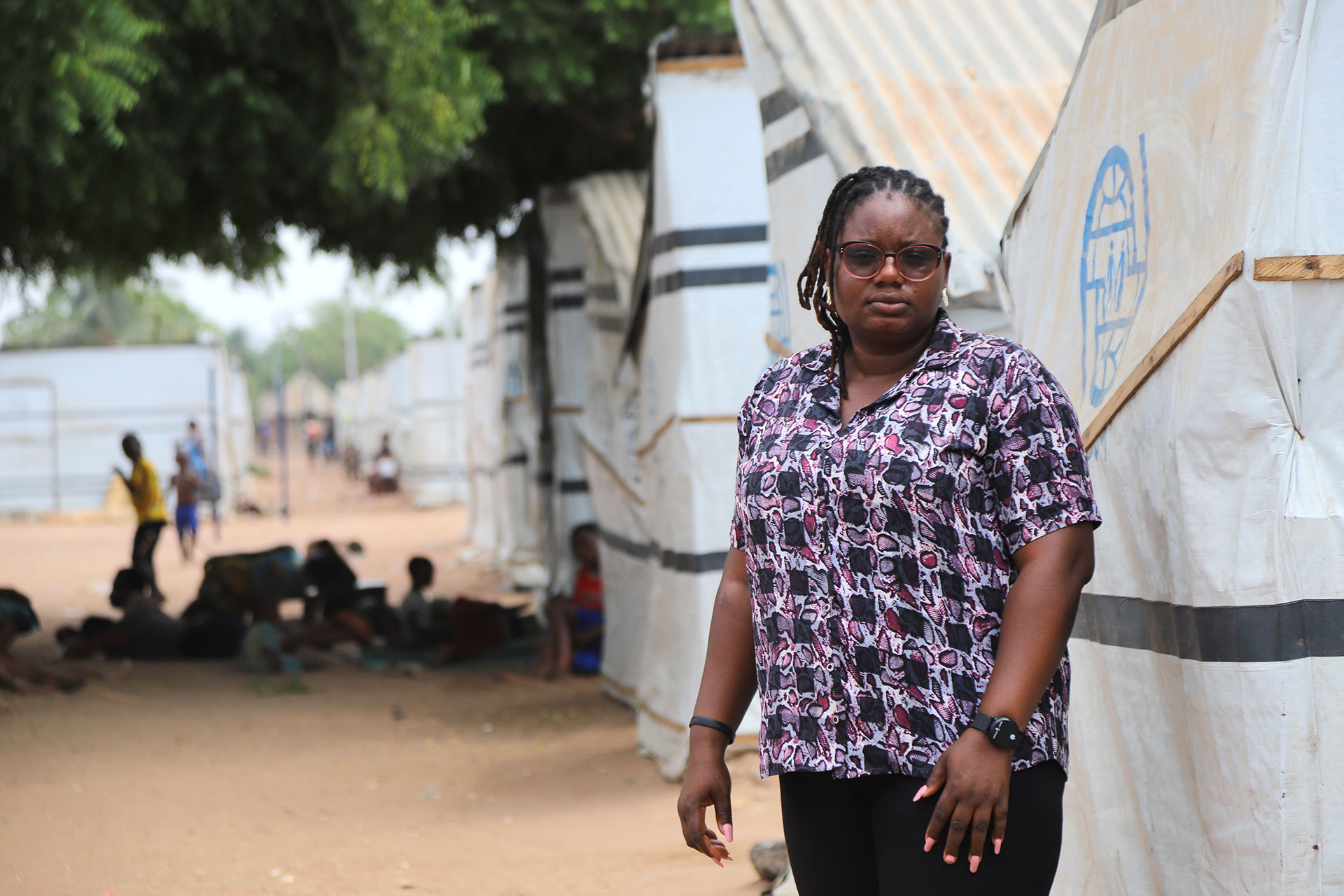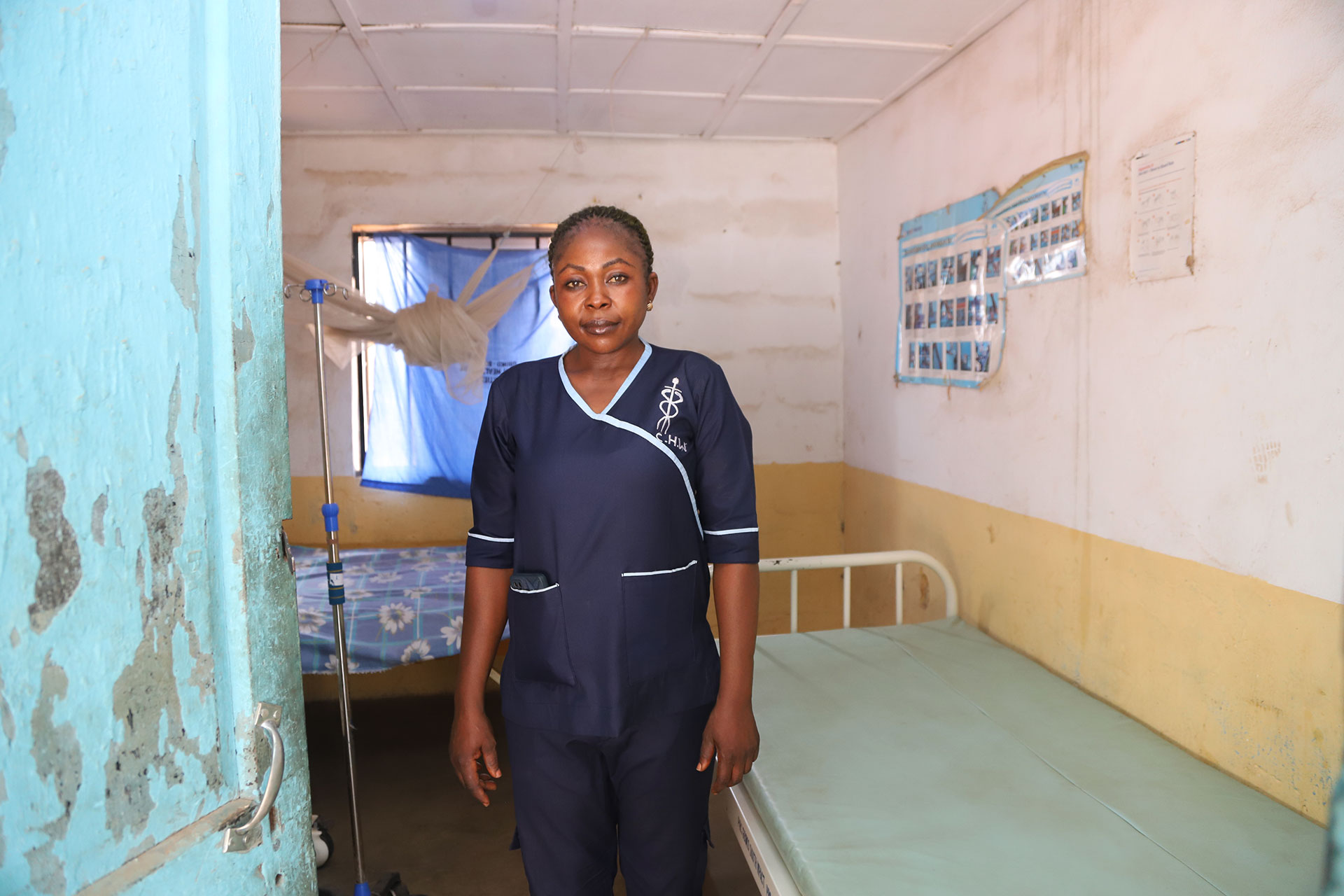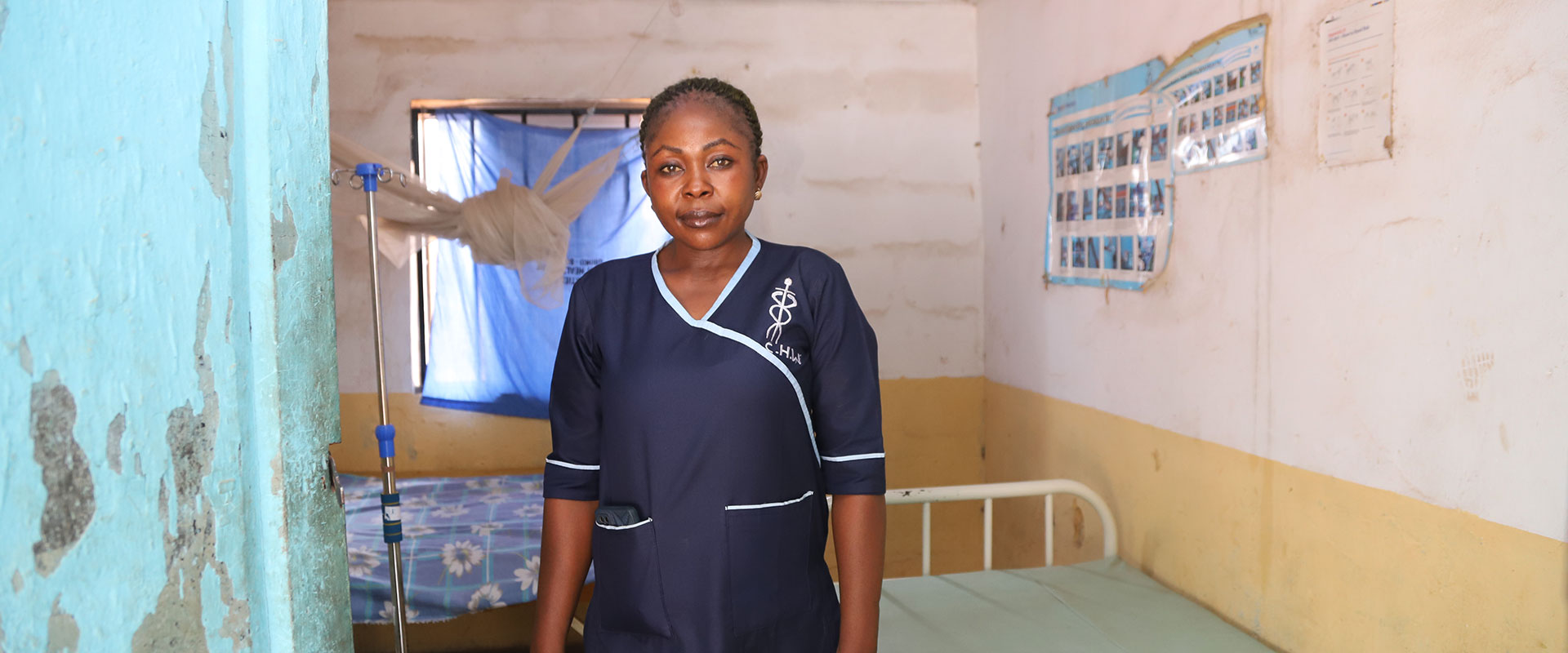The Ipas Nigeria project, “Improving Reproductive Autonomy for Women and Girls in Nigeria”, addresses this need. It provides training to humanitarian and health care workers to offer responsive care to women and girls who have experienced sexual violence in humanitarian settings.

Pictured above: Deborah at one of the Internally Displaced Camps in Makurdi, Benue State. © Ipas Nigeria
In Benue State, north central Nigeria, Deborah, a humanitarian worker trained by Ipas Nigeria, is raising awareness about sexual violence within displaced community groups.
“
I learnt about sexual violence and forced marriage, as these are prevalent in the camps. I got to understand the different types of violence during the training— physical, sexual and emotional. We always had the report of rape cases in the camp but based on what I learnt from the training, I did some sensitization in the camp,” she explains.
Debora also educates parents about the rights of their children, as some of the parents use their power to push their children to have sex with men for food.
“
I also learnt referral pathways when these issues come up. There are times young women in camps have no access to sanitary pads, but I learnt how to educate them to protect their menstrual hygiene. Also, I didn’t know the first thing to do when a person has been raped is to take the survivor to the hospital or nearest clinic, but I know this now and I would do this when there is any case of rape.

Pictured above: Suzan, one of the Ipas trained healthcare workers in Gboko South, Benue State.© Ipas Nigeria
Suzan, a healthcare worker in Gboko South, Benue State, feels better equipped to deliver safe abortion services and post abortion care.
“
I learned the techniques for manual vacuum aspiration (MVA) and medical abortion for safely ending a pregnancy within our facilities,” Suzan says. “Recently, I was able to efficiently attend to a patient that had an incomplete abortion. Before, I would refer the case to the general hospital but now I can attend to this type of case. I was also able to provide safe abortion services in the facility with the training I had on using MVA and offer post-abortion family planning to the patient.”

Pictured above: Ronke, a community health extension worker who was trained by Ipas in Ibadan, Oyo State. © Ipas Nigeria
In Ibadan, Oyo State, southwestern Nigeria, Ronke, a community health extension worker recognizes the need to offer support when sexual and reproductive health services are needed.
“
From the training, I learned that girls could make their own decision about an unintended pregnancy so they can progress in their lives,” Ronke shares. “I didn’t know this before. After the training, I learnt that I could advise girls to take up contraception too. Before the training, I would blame or judge them when they came to me for help but now, I give her options that can help her not to have unintended pregnancies.”

With funding from Global Affairs Canada, Ipas Nigeria is implementing a project titled ‘Improving Reproductive Autonomy for Women and Girls in Nigeria’ to ensure women and girls have autonomy to choose sexual and reproductive health care including abortion and contraception. As part of the project, humanitarian and healthcare workers were trained to provide responsive care to women and girls who have suffered sexual violence in humanitarian settings.


